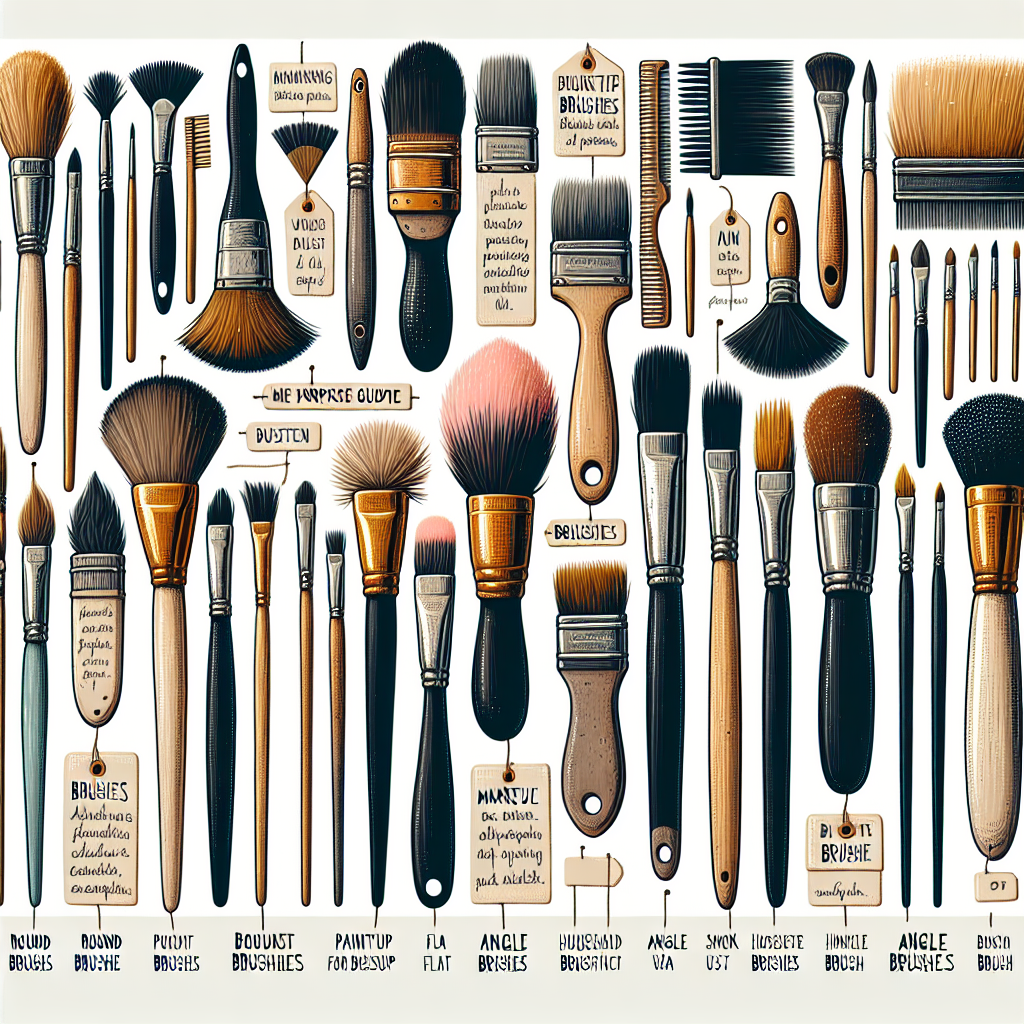Brilliantly used in all aspects of life, brushes play a crucial role. Whether it’s in a beauty artist’s arsenal, a painter’s toolkit or a homemaker’s cleaning caddy, brushes are essential implements that have been aiding mankind for centuries. But with a myriad of options available, how can we determine the right brush for the job? Understanding the vast array of brush types is key to executing your chores or hobbies effectively and efficiently. With a stunning array of options available, from paintbrushes, makeup brushes to cleaning brushes – it’s time to brush up your knowledge with our essential brush guide!
Paint Brushes
When it comes to painting, the right brush can make a world of difference. Each type of brush is tailored to a specific type of paint and painting technique. Flat brushes, for instance, are perfect for bold strokes and filling wide spaces. Round brushes on the other hand, help with detailing, lines, and fills. Filbert brushes offer versatility in creating different types of strokes, while fan brushes are best for blending and creating textural effects. Additionally, each brush features different types of bristle materials – synthetic like nylon or natural like hog hair, which play a huge role in the final effect.
Makeup Brushes
Makeup brushes are just as important as the makeup itself! For instance, a foundation brush allows for a smooth, flawless finish. Concealer brushes help in precision application for spots, whereas powder brushes are large, fluffy, and perfect for dusting powders. Eye makeup demands a variety of brushes like blending brush, shader brush, and eyeliner brush. For luscious lips, a lip liner brush works best. Each application calls for a different type of brush, and makeup fanatics swear by the magic the right kind of brush creates!
Hair Brushes
Just like with paint and makeup brushes, choosing the right hair brush can enhance the health and appearance of your locks. Paddle brushes are great for smoothing out hair. Round brushes add volume and can help with blowouts. Wide-tooth combs are excellent for detangling, especially on wet hair. Boar bristle brushes can help distribute natural oils from the scalp to the hair ends, promoting shinier and healthier hair. Therefore, selecting the right hair brush is just as important as selecting the right shampoo or conditioner.
Cleaning Brushes
Cleaning brushes are an essential component of any household. Brushes designed for sweeping floors, scrubbing dishes, and cleaning toilets are some of the common types. Their design and bristle stiffness often depend on the type of cleaning task. For instance, a scrub brush with tough bristles is excellent for stubborn dirt, while a soft, fluffy duster brush could be perfect for removing dust off delicate surfaces. Therefore, it’s necessary to choose a cleaning brush based on its functionality and the object you’ll be cleaning.
Conclusion
Brushes are more than simple tools; they serve as an extension of our hands, allowing us to perform tasks with precision and effectiveness. By understanding the types of brushes available and their specific uses, you can ensure you always have the right brush on hand for every chore, art project, makeup look, or hairdo. It’s also essential to take good care of your brushes – clean them regularly and store them so they keep their shape and last longer. Brush up your life with the knowledge of these essential tools!
FAQs
-
Why are there different types of paint brushes?
Different types of paint brushes cater to different painting techniques and types of paint. The shape, size, and bristle material all contribute to the final effect of the painting.
-
Do I need different makeup brushes for different makeup products?
Yes, different makeup products require different types of brushes for the best application. For instance, fluffy brushes are typically used for powders while dense brushes are used for foundation or cream-based products.
-
How frequently should I clean my brushes?
The frequency of cleaning your brushes largely depends on their usage. However, as a general rule, makeup brushes should be cleaned weekly, paint brushes immediately after use, and cleaning brushes depends on the task at hand.
-
Is there a difference between synthetic and natural bristles?
Synthetic bristles are usually smoother and more resistant to damage from solvents, while natural bristles have a structure that traps paint, allowing for a smoother application.
-
How should I store my brushes?
Brushes should be stored in a cool, dry place with the bristles facing upwards to maintain their shape and longevity.

